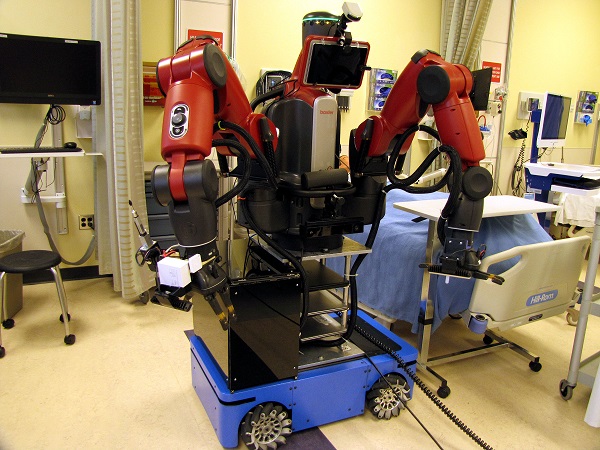
Jun 28th, 2017

In response to the outbreak of highly infectious diseases, such as Ebola (2015) and Zika (2016), a Tele-Robotic Intelligent Nursing Assistant (TRINA) was developed by me and Dr. Hauser at Duke University to assist healthcare workers in routine patient-caring tasks, handling of contaminated materials and protective gear. This tele-nursing robot consists of a mobile manipulator robot, a human operator’s console, and software that supports various interfaces for direct teleoperation and task automation. It is also equipped with telepresence for bi-directional communication, and wireless sensors for collecting information from patient and environment. This tele-nursing robot is designed to be human-safe, versatile and usable by novice users.
At WPI, we futher improve TRINA’s level of automation, adaptability, and usability in hospital nursing and in-home caring tasks. Beyond medical applications, we aim to endow the TRINA with general-purpose motor skills to assist tasks in warehouse, social service, and manufacturing. To this end, we focus on the shared-autonomous control in (1) shared control of robot motion coordination, (2) teleoperation interface, (3) high-level learning and planning in human-robot collaboration. Our research enhances the synergy of healthcare workers with shared-autonomous robots, and develop best practices for worker skill assessment and training.
To be added